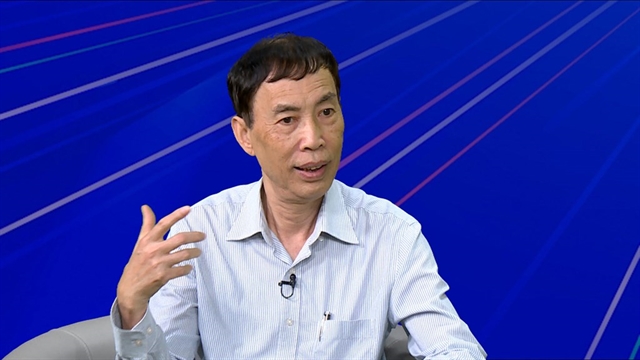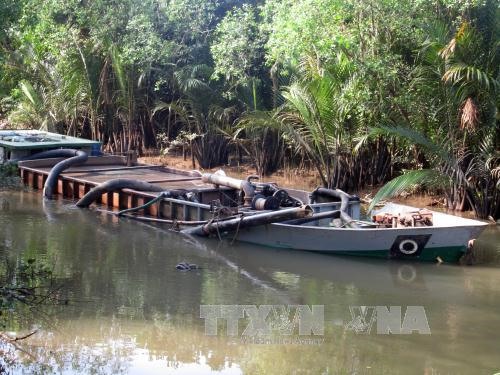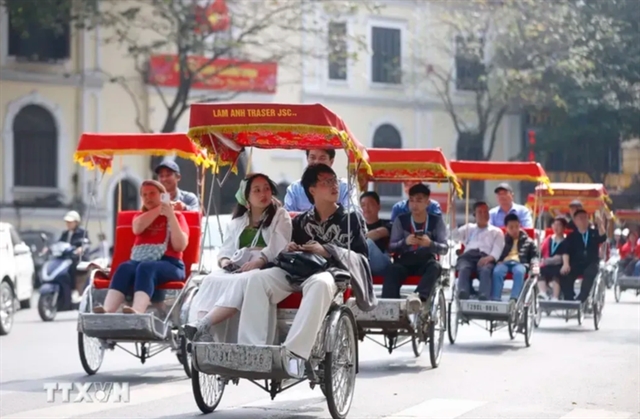 Society
Society

Bến Tre Province’s People's Committee vice chairman Nguyễn Hữu Lập has asked agencies to intensify inspections of illegal sand mining activities, focusing on hotspots in Chợ Lách, Châu Thành and Giồng Trôm districts.
 |
| Bến Tre Province steps up monitoring of illegal sand mining. — VNA/VNS Photo Trần Thị Thu Hiền |
BẾN TRE — Bến Tre Province’s People’s Committee vice chairman Nguyễn Hữu Lập has asked agencies to intensify inspections of illegal sand mining activities, focusing on hotspots in Chợ Lách, Châu Thành and Giồng Trôm districts.
Lập spoke at a conference held this week to review mineral exploitation in the previous nine-month period.
As the problem has worsened, Bến Tre Province’s departments, branches and sectors have implemented preventive measures to deal with the problem.
From December 2017 to the end of July, inter-sector inspection forces at all levels and local police forces conducted many regular and unscheduled inspections.
They detected more than 1,270 cases of illegal sand mining, including 1,118 cases that received fines for administrative violations totalling over VNĐ8 billion (US$343,000), and confiscated illegally-mined sand for auction.
Nguyễn Hữu Lập also asked local police, the market management division and the tax department to closely monitor sand mining sites for illegal purchase and sales of value-added tax (VAT) invoices.
The police sector should also put the means of exploitation used for illegal sand mining into temporary detention.
Bến Tre City and Thạnh Phú, Giồng Trôm and Bình Đại districts have approved a plan to protect the province’s untapped mineral resources.
The plan clearly defines the responsibility of heads of government at all levels in the four localities.
If sand mining sites obtain licences, the districts’ people’s committees will inform local residents about the licences so they can help with supervision and inspection.
Some localities have assigned regular patrols on rivers at night and set up hotlines to receive information and complaints about illegal sand mining sites and untapped mineral resources.
Inspection and crime-prevention teams have also been set up.
Lê Văn Đáo, deputy director of the provincial Department of Natural Resources and Environment, said that illegal mining activities were becoming increasingly sophisticated at night.
In addition, management of building materials businesses with sand pits has been weak.
To improve management of mineral resources, Đáo has asked the Government to stipulate which minerals are special commodities that must enclose VAT invoices and to stop illegal trading in VAT invoices.
The province has also suggested that the Ministry of Finance issue regulations on the use of invoices and vouchers for the purchase or sale of minerals.
Currently, there is no policy that strictly controls the origin of sand used by building materials companies.
The province has also proposed to the Ministry of Justice to amend and supplement a decree dated April 3 last year. The request is to review an increase in fine levels and apply additional sanctions such as confiscation of means used for illegal exploitation of less than 50cu.m of sand. — VNS




